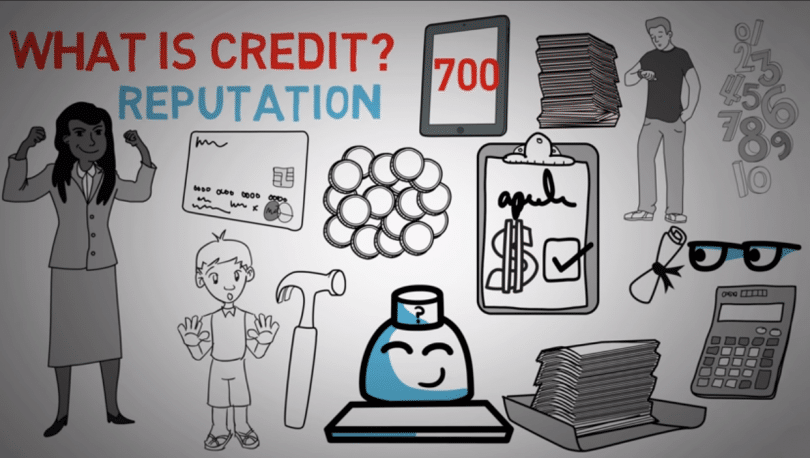One of the most important ratings in your entire life is your credit score. It’s a number that follows you everywhere and is often checked in order to determine if you qualify for a loan or a can rent a property. Now more than ever before, it’s easy to check your credit score and make changes to it often.
When applying for a new credit card, bank loan, car rental, home rental, or mortgage loan, your credit score will be checked to determine whether you qualify for the loan, and how high your interest rates will be. There is nothing wrong with checking your credit score. It doesn’t hurt your credit at all, as many people fear. It may be a good habit to get into if you check it every so often. You can even work on improving your score by routinely reviewing it.
Contents
Good Credit Can Lead to Lower Car Insurance Rates
There are many benefits to having good credit that some people might not even be aware of. This includes cheaper car insurance rates. According to a leading auto insurance comparison site AllianceInsurance.net, a score above 700 can reduce your insurance premiums by about 10%. This can amount to savings of hundreds per year off your car insurance coverage. Not only will your auto insurance bill go down each month, but you will also qualify to get buy now pay later car insurance. However, you need to do your due diligence.
Staying on top of your alerts and knowing when there is a sudden dip in your score can help you identify fraud right away. Sometimes credit reports can show errors as well. The sooner you notice them, the faster you can go about correcting them. Take a look at this quick breakdown of your credit score, so you can get ahead of the game with everything you need to know.
What Exactly Is A Credit Score?
A credit score is a composite rating based on your overall credit usage. Scores usually fall between 300 and 850. The higher the number, the better the score. This is a magic number that will alert your creditors and lenders to how reliable you are, and how good you are at managing your credit. If you have a large number of credit lines open, and you have difficulty paying them off, then your score will be bad or poor. Those who have a good handle on their credit have scores that land them in the fair, average, or good range.
Experian is one of the common credit models used to evaluate your score. Their ratings are as follows:
- 300-579: Very Poor
- 580-669: Fair
- 670-739: Good
- 740-799: Very Good
- 800-850: Exceptional
There are different credit scores used for different situations as well, so it’s important to know the similarities and differences between them.
FICO Vs. VantageScore
FICO is the most common credit-scoring model used, with it being a determining factor in over 90% of American lending transactions.
There are several similarities between FICO and VantageScore:
- Scores range between 300 and 850
- Your payment history is the biggest factor taken into consideration when determining your credit score
- Each score influences lending decisions
However, there are many differences of note as well:
FICO Specifics
Some of the key factors that are specific to FICO and not VantageScore include:
- Payment history is 35% of the score’s makeup, which determines how often you pay credit on time.
- Amounts owed is 30% of the score, showing your credit limits and utilization rates
- Credit history makes up 15% of your score, where lenders study the amount of time you’ve had your credit for
- Mixed credit is taken into account as 10% of the score, studying the variety of credits you have (credit cards, loans, mortgages, etc.)
- New credit makes up the final 10%, showing how often you open new credit lines
The way the above factors are measured for VantageScore is typically quite different, although some methods are the same across all credit rating agencies.
VantageScore Specifics
This is the model VantageScore uses to determine your overall credit score:
- Payment history is the most influential part of the score, which is comparable to FICO in this case
- Duration of credit and the percentage of credit used is the second most influential part of your credit score
- Total credit debt plays a moderate role in determining your credit rating
- Available credit and recent credit inquiries have the least bearing on your score, with small measurements
Equifax and FICO veteran John Ulzheimer is quick to suggest that you check both your FICO and your VantageScore credit ratings simultaneously in order to get the biggest picture possible. Remember that lenders will check against all of these different scores, so be sure that you stay on top of it as well. Checking your credit score is free, so there is no excuse.
Factors That Don’t Impact Your Credit Score
Consumers tend to believe that certain things affect their credit score when, in reality, they may not affect it. Common misconceptions can lead you to negatively impact your score or become concerned about things that don’t matter.
Typically, anything that determines your wealth does not have a bearing on your credit score. How much money you make, how much you are worth, or how much equity you have in your home does not make an impact either way. Just having more money to pay off your credit card debt is not enough to improve your score. The way you use it to manage your credit certainly does.
Other life-specific factors such as your employment history, gender, marital status, race, nationality, occupation, education, or political affiliation also have no bearing whatsoever on determining your credit score.
The Difference Between Credit Score and Credit Report
A credit score and a credit report are two different things. Your credit report gives you a snapshot of your credit as a whole. It shows a wide variety of details about your activity, credit situation, history, and personal information, as well. Your credit limits, account balances, liens, foreclosures, and social security information is all listed on your credit report. You typically receive a credit report from one of three companies: TransUnion, Equifax, and Experian.
On the other hand, your credit score is a number that serves as a representation of the information in your report as a whole. It’s a rating of the health of your credit report, and scores should be checked as often as you should go to the doctor.
Getting Your Free Credit Score
Almost every single company that issues credit cards also provides some way to access your credit score for free. Now, cardholders can log into their card affiliate’s website with their own account information to view their score. Most large banks offer free credit scoring to all individuals who have a credit line with their accounts.
The model used to rate the score may vary by company. For example, Chase and Capital One use VantageScore to measure your rating, while Citi and Discover use FICO. Log into the website of your credit card issuer and navigate to the free credit service section to get your score immediately. This is usually displayed on a dashboard that gives you an overview of the influencing factors to your score.
Other free resources won’t require you to be a cardholder, and they can be accessed at any time:
- CreditWise from Capital One: Free VantageScore from TransUnion
- Discover Credit Scoreboard: Free FICO Score from Experian
- Chase Credit Journey: Free VantageScore from TransUnion
How Does Your Credit Score Impact Qualifying Credit Cards?
The higher your score, the more credit cards you can apply for. It’s just as simple as that. It’s not only the number of credit cards you can apply for but the quality as well. You’ll receive offers for credit cards that have wonderful interest rates and low starting APR so you can have an easier time managing them.
If you recently checked your score good for you. If you haven’t, it’s time to check it. With these tips, you too can raise your credit score and take advantage of all the perks that come with it.







